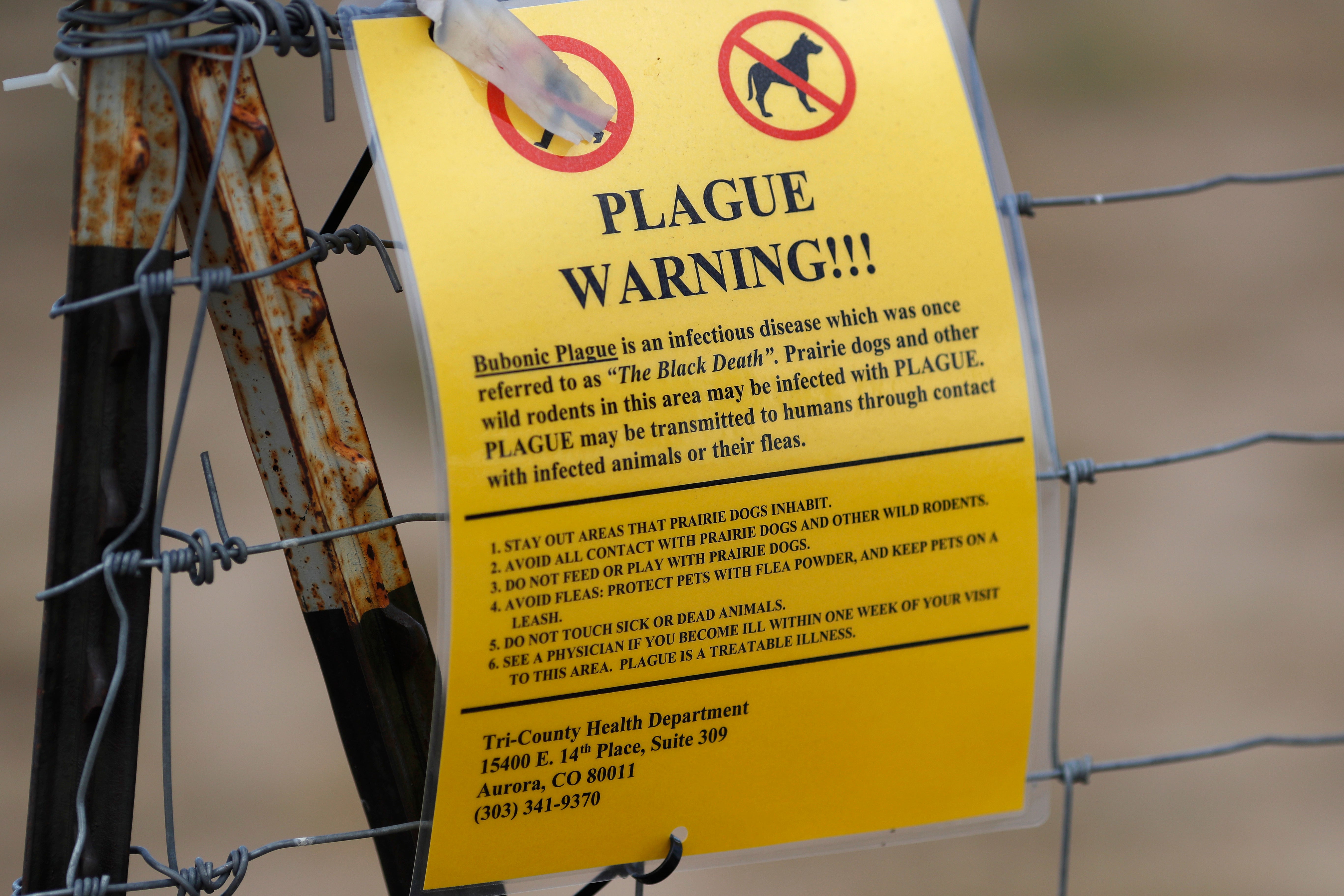Colorado public health officials confirm new case of human plague
About seven people are infected with the plague every year in the US, according to the CDC

Public health officials in Colorado have confirmed that a human has tested positive for the plague, a rare but potentially deadly infectious disease that’s typically spread through flea bites.
The infected individual is from Pueblo County, according to the Pueblo Department of Public Health and Environment.
While the plague conjures nightmares of flea-infested rats and dreary medieval villages filled with the dead and dying, in the modern day things aren't so grim.
The plague re-emerges every year in the US, but it is rare and on average affects just seven people annually. The number of cases typically tick up in the summer and are often clustered in the southwest or Colorado.
Thankfully, the modern plague can be treated with medicine, though it does need to be addressed quickly to prevent severe symptoms or even death. Symptoms include muscle aches, chills, fever, severe headache, swollen lymph nodes, nausea and vomiting, according to the US Centers for Disease Control.

Just like in the Middle Ages, the plague is typically spread via flea bite. In the US, rats, squirrels, mice and other rodents — incluing prairie dogs — can be carriers of the plague due to their fleas. Those fleas can also move to household pets like dogs and cats, which can then infect humans.
According to the Colorado Department of Public Health & Environment, prairie dogs are especially susceptible to plague. Whenever a population of praire dogs goes silent during the summer, it is a warning to Colorado health authorities that the plague has potentially returned.
Though the plague is rare, it can still kill. Earlier this year, a man from New Mexico died from the plague, though it is unclear how he was infected.
In February, a man in Oregon contracted the plague from his cat, but thankfully survived.
Health officials advise that individuals avoid contact with dead animals and make sure that their pets are up to date on their flea medications in order to minimize possible exposure to the plague.
Between 1970 and 2020, there were nearly 500 cases of human plague reported in the US — about seven cases on average each year, according to the CDC.
In the US, the bubonic plague turns up most frequently in New Mexico, Arizona, Colorado, California, Oregon and Nevada in varying regions. Worldwide, Africa typically has the highest number of plague cases each year, according to the CDC.
Reports of deaths also remain very low in the United States. Between 2000 and 2020 there were only 14 deaths confirmed by the CDC.
Join our commenting forum
Join thought-provoking conversations, follow other Independent readers and see their replies
Comments